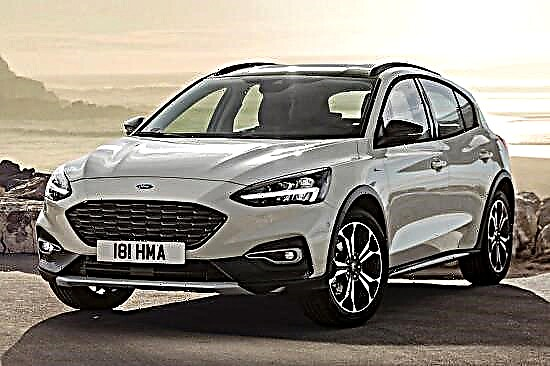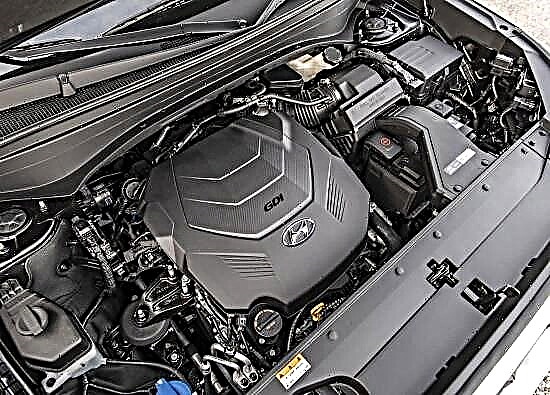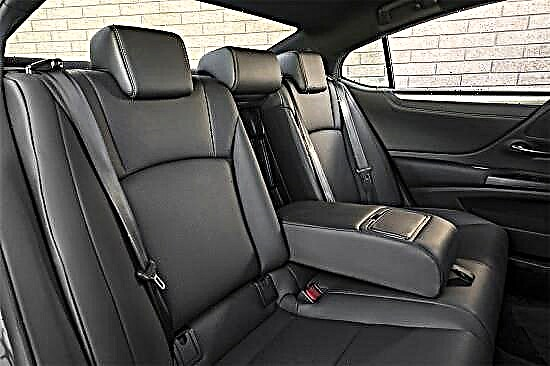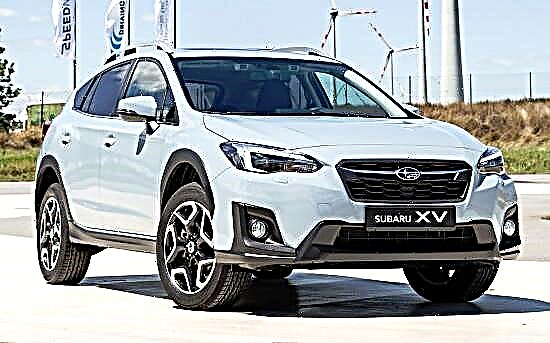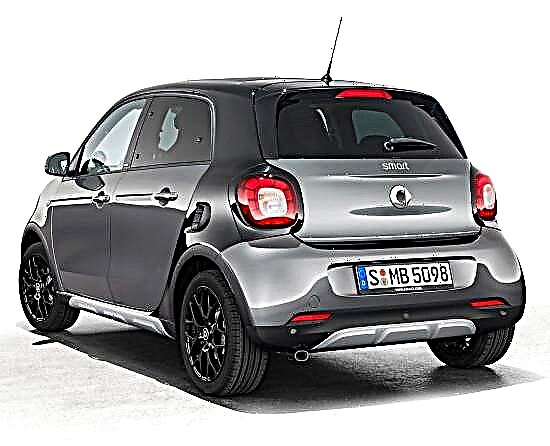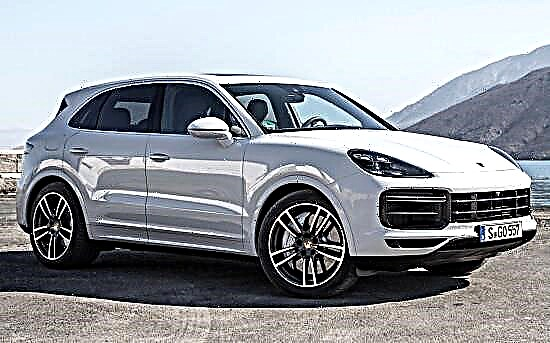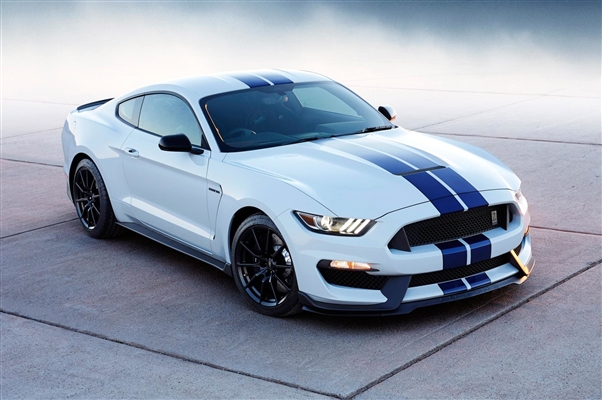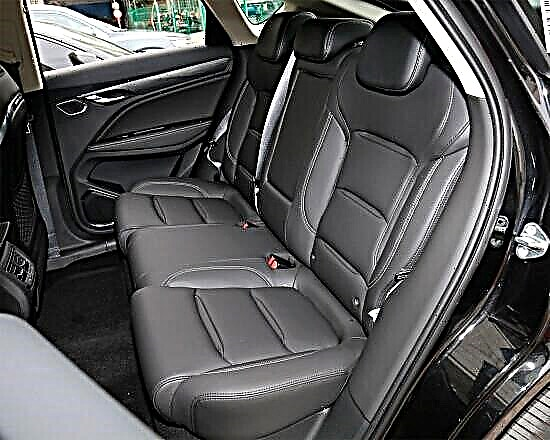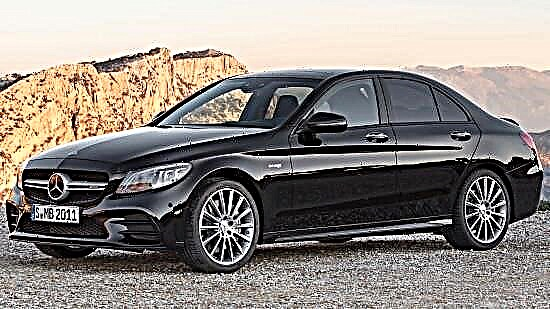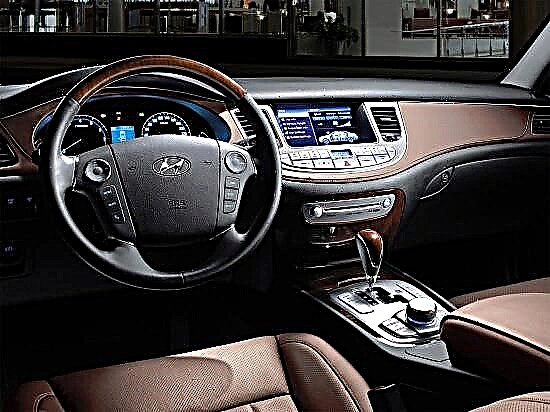The Koreans have set themselves a serious task - the Hyundai company seriously expects to enter the premium segment, displacing the “German aristocrats” and “Japanese samurai”. This was openly announced by the chairman of the board of directors of Hyundai Motor Group, Chong Mong Ku, introducing the new brand "Genesis" (in translation - "emergence") - a very apt name for a car with great ambitions.
Until now, not a single South Korean manufacturer has been able to compete on equal terms with European and Japanese car manufacturers (except perhaps the attempt by KIA with cee’d in class “C”). And Hyundai must have some serious trump cards for the Genesis attempt to succeed.
Well, first of all, Hyundai Genesis is built on the basis of a new rear-wheel drive platform, which is specially designed "with an eye" to significantly improve the dynamics of the car.
By the time it entered the main markets, three engines were offered for Genesis - 3.3, 3.8 and 4.6 liters (but the most powerful of them - Tau V8, developing 375 hp, was not officially planned to be supplied to Russia, therefore we limit our test to the 3.8-liter DOHC V6 rated at 290 hp).

As the saying goes - "they are greeted by their clothes" and - yes: the Hyundai Genesis sedan looks impressive ... but some of the body elements are somewhat reminiscent of the details of other (more famous) cars ... although maybe this is just a "reflex" in relation to the new products of the Asian car industry ... but, for example, the taillights are very similar to the Mondeo headlights ...

In addition (when declaring that the sedan is oriented to the world market), the design of the radiator grill is somewhat perplexing - it is clearly made in the Asian style (will the European public appreciate it?) ...
But when you find yourself in the Hyundai Genesis salon, you immediately realize that you are surrounded by luxury.

At the same time, all interior details are combined with each other, creating complete harmony in the cabin. The leather-trimmed doors, the armrest cover and the center panel are unambiguous hints that this car belongs to the premium segment. This impression is enhanced by the heated and ventilated driver's seat, and the picture is completed by climate control with humidity and rain sensors, automatic wipers and electric rear window blinds.

Test drive Hyundai Genesis showed good (as it should be for cars of this level) noise insulation.
But as for the steering - it could be more precise. Hyundai Genesis is clearly far from the honed reaction of German models of this level - this is a significant disadvantage.
The undoubted advantage of the Genesis is its smooth ride, which, in turn, provides excellent comfort for both driver and passengers. The smooth ride is due to the EAS air suspension, which is offered as an option. By the way, about the suspension - the Hyundai Genesis body can be raised by 30 mm, increasing the ground clearance for driving on bumpy roads (but there is a limitation - you can only move in this mode at speeds up to 70 km / h). Upon reaching 120 km / h, the Genesis automatically "falls" to the highway by 15 mm - providing optimal aerodynamic performance. By the way, it takes less than five seconds to react to a change in the road situation (Korean engineers especially emphasize this, since many competitors take 30-60 seconds to do this).
The dynamics of the Korean sedan is just as good - up to 100 km / h (almost a 2-ton car) accelerates (with the help of a not very powerful 290-horsepower engine) in just 7 seconds. And if one of the future buyers prefers a version with a 262-horsepower engine, then the same figure will be only 0.6 seconds worse.
But despite the good dynamic characteristics, the top speed of the Hyundai Genesis deserves harsh criticism. Everyone has long been accustomed to the fact that the maximum speed of large Mercedes or BMWs is 250 km / h with the obligatory note about the electronic limitation. But the Hyundai Genesis is only capable of 210 km / h.
It is also worth noting that this car is equipped with powerful HID xenon headlights, which are characterized by low energy consumption and more intense road lighting. Xenon optics, of course, do not blind the drivers of oncoming vehicles. In addition, these headlights automatically adjust the lighting in the direction of maneuver.
Not without innovative technologies. For example, in the manufacture of a new car, bonding technology is used that complements traditional body welding.
Traditionally, the body is assembled using multi-spot welding, but Hyundai Genesis breaks this tradition. Critical joints with a total length of 90 m are glued together to provide a stronger chemical bond. And only after that spot welding is carried out.
As a result of the application of this technology, the torsional rigidity of the body is superior to that of the BMW 5 Series, Mercedes-Benz E-Class and Lexus LS. But the higher strength is also explained by the relatively low weight of the Genesis body.
Brief technical characteristics of Hyundai Genesis (BH).
- Dimensions - 4975x1863x1480 mm
- Engine - gasoline, 3778 cm3, 290 hp
- Transmission - automatic, 6-speed
- Dynamics - maximum speed - 210 km / h with acceleration to 100 km / h in 7 seconds

In conclusion, we can say that Hyundai Genesis expects a difficult path. It's simple - the fact is that people who buy Mercedes or BMW, in the overwhelming majority, first of all, pay money not so much for technical parameters as for the brand image, which will be a component of their own image. And in this regard, Hyundai Genesis has not yet proven itself and does not have the proper weight.
In 2017, in the secondary market of the Russian Federation, the original incarnation of Hyundai Genesis is offered at a price of 800 ~ 1,200 thousand rubles (the cost of a particular instance largely depends on the condition and equipment).

